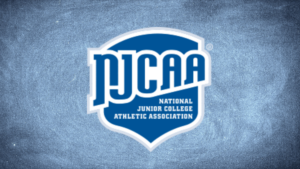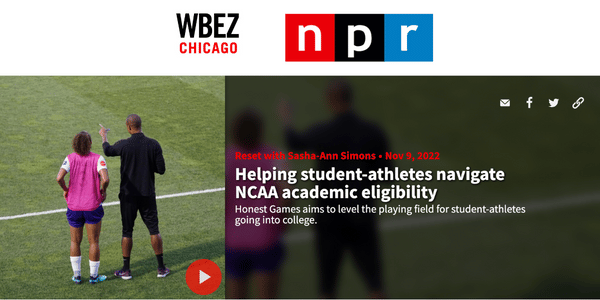Journey into JUCO: What to Know About Playing at the Junior College Level
Updated on Jan 15, 2026

Do you know where professional athletes like Aaron Rogers, Cam Newton, Jimmy Butler, Shawn Marion, Sheryl Swoopes, Mike Piazza and Albert Pujols went after high school?
They all got their start at a two-year college (commonly known as a community college, junior college or “JUCO”) before making a name for themselves in professional sports years later.
Deciding to attend a JUCO school can be a hard decision for a high school athlete, especially if it is not their first choice. While in reality, playing at the JUCO level could actually be beneficial for both their academic and athletic careers. The assumption that student-athletes who attend JUCOs are “bad students” or “not good enough for a four-year school,” or “lack work ethic” could not be farther from the truth. Attending a JUCO is the smart decision for many financially, as well as academically. It can also be the best step for their athletic development.
With the transfer world in college athletics at its peak and the number of student-athletes enrolling at JUCOs on the rise, might you follow in their footsteps?
Honest Game has reviewed the collegiate playing opportunities for student-athletes, including the reasons to play sports at a NCAA Division III school, and we are now going to dive deeper into the details on why some student-athletes choose to play at the JUCO level.
Almost all JUCO schools in the United States are governed by the National Junior College Athletic Association (NJCAA), an association that serves as the national governing body for two-year college athletics in the United States and is the nation’s second-largest national intercollegiate sports organization (second to the NCAA). These colleges compete at either the NJCAA Division I (DI), Division II (DII) or Division III (DIII) levels. Each year, more than 60,000 student-athletes from 500 member colleges compete in 27 different sports. In addition, the NJCAA hosts 52 national championship events each year.
JUCOs in the state of California operate as a separate organization as the California Community College Athletic Association (CCCAA), with their own separate membership and legislation for more than 24,000 student-athletes.
Academic Requirements for Junior Colleges
Academic eligibility for JUCOs differs from NCAA and NAIA in several key respects. Whereas the NCAA’s division-based eligibility requirements are consistent across member schools, JUCOs are allowed to set their own standards.
A student-athlete must be a graduate of a high school with an academic diploma, general education diploma (GED) or a state department of education approved high school equivalency test.
Typically, student-athletes are eligible to compete athletically at the JUCO level once they are admitted and enrolled as a student. These standards are easier to meet than those of the NCAA/NAIA, and students who fall short are sometimes offered special classes to meet the necessary qualifications post-enrollment.
While there isn’t a “normal path” to JUCO, many student-athletes attend classes and compete at the JUCO level before transferring to a four-year school. Some student-athletes earn an associates degree to get ahead in their traditional four-year coursework.
Do JUCOs Offer a Letter of Intent (NLI)?
The NJCAA NLI is used to commit an individual to a specific institution for a period of one academic year. The form is only valid for NJCAA member colleges and has no jurisdiction over NCAA or NAIA colleges.
Are you looking at JUCO because you’re academically ineligible at the NCAA DI/DII level or NAIA school you hoped to attend?
Some student-athletes attend JUCO because they are non-qualifiers – or do not meet the initial NCAA DI/DII academic eligibility requirements after graduating high school. Others may not meet the NAIA requirements for initial eligibility and must go JUCO.
Non-qualifiers who attend JUCO can still play at an NCAA DI school if they complete the following requirements:
- Attend at least 3 semesters at the JUCO
- Graduate from the JUCO
- Earn 48 transferable credit hours (with at least 6 in English, 3 in Math, 3 in Natural Science)
- Earn a 2.5 GPA
Students who complete the above requirements are considered “2-4 Transfers” and are eligible to play right upon transfer at an NCAA DI 4-year school. The rules are less stringent for “2-4 Transfers” looking to attend NCAA DII schools. Sometimes, the same NCAA coaches who were recruiting these students in high school will re-offer that same scholarship now that they have qualified to compete.
Transfer rules for non-qualifiers are quite complex and student-athletes should contact their JUCO Academic Advisor or Athletic Director to make sure they are on track to play once they transfer.
Watch for a future blog with 2-4 Transfer details from Honest Game!
Honest Game Insight: Attending a JUCO right out of high school does not inhibit a student-athlete’s goal of playing at a traditional four-year college!
Are you looking at JUCO because financially it makes the most sense?
Just because you are looking at JUCO, does not mean there won’t be an athletic scholarship coming your way! Student-athletes looking at NJCAA DI schools can receive full athletic scholarships (including tuition, books, fees, room and board), up to $250 in course required supplies, as well as transportation costs. NJCAA DII schools may offer tuition, books, fees, and up to $250 in course supplies. Sometimes students at the DII level are given the option to live with “host families” to help with the cost of room and board. NJCAA DIII schools are not permitted to offer any athletic scholarships but they can offer merit, need-based, or academic aid.
Even if you do not have an athletic scholarship and must pay for the costs yourself, the price of attending a JUCO is often much less than a traditional four-year school.
Spending your own money to attend a JUCO may seem daunting; however, the upfront cost may save you more down the road if you are looking to transfer to a four-year institution. Often, NCAA DI coaches will offer large scholarships to JUCO transfers for the years that they attend the DI school and these offers might possibly be larger than the amount offered when the student-athlete was initially recruited right out of high school.
There are several ways for student-athletes to fund their education. Read Honest Game’s blog about the available financial aid options for student-athletes and learn why filling out FAFSA forms is a crucial step in the process.
Are you looking at JUCO because you did not get recruited at the division level you hoped for during high school?
Oftentimes in high school, student-athletes have a dream of playing for a certain team, however their dream may not come to fruition as the signing day approaches. Other students may feel that they can play at a higher level if they have another year of training and want to re-enter the recruiting world after a year at a JUCO.
Attending JUCO is recommended for student-athletes looking to further advance their knowledge of the sport, further train to get their bodies in peak performance or get used to strength and conditioning routines for collegiate programs. Time spent at a JUCO often makes for a much more developmentally advanced recruit and some college coaches look to fill their rosters with experienced JUCO students over high school seniors.
Student-athletes should use their time at JUCO to the fullest extent. Work hard at practice, eat properly, excel in the classroom and use your time at JUCO to rebrand yourself as a more mature and confident version of your high school self. Show four-year college coaches that you spent your time at JUCO wisely!

As a former Senior Associate Athletic Director at the NCAA Division I level and with more than 20 years of experience in collegiate athletics, Courtney has advised thousands of student-athletes through the college recruiting and eligibility process for college sports. Interested in virtual counseling with Courtney? Sign up here.




